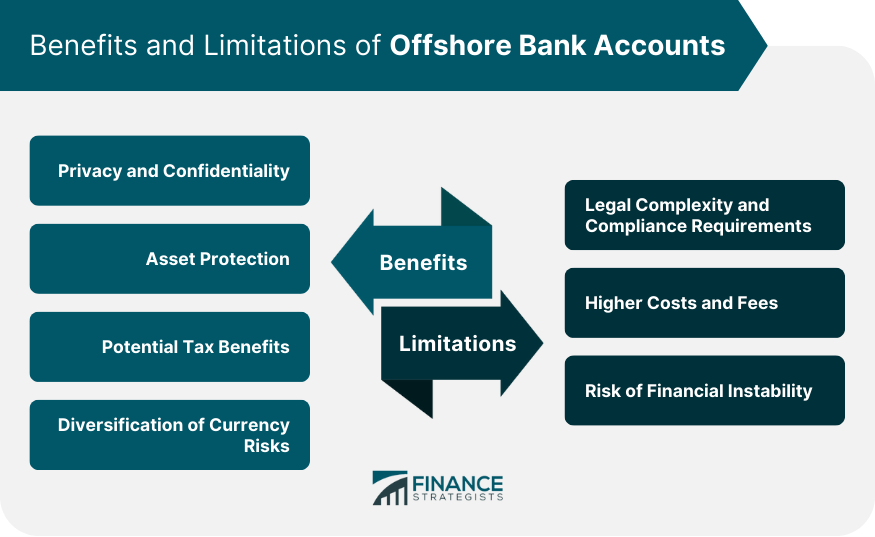Recognizing the Lawful Implications of Offshore Company Development

Legal Framework for Offshore Business
When developing an offshore business, understanding the lawful framework governing its formation and procedure is crucial for compliance and threat administration. Offshore business operate under specific legislations and guidelines that vary from those of onshore entities. The lawful structure for overseas companies typically includes stipulations for business registration, shareholder needs, director obligations, and tax obligation responsibilities.
Firm enrollment includes sending the required paperwork to the suitable regulative authorities in the selected territory. This process often requires thorough information concerning the business's framework, investors, and desired activities. Additionally, overseas business should abide by certain investor requirements, such as preserving a register of shareholders and maintaining this details as much as date.
Directors of offshore business have fiduciary duties to act in the best interests of the firm and its investors. By adhering to the lawful structure controling offshore firms, companies can run with self-confidence while decreasing legal risks.


Tax Obligation Effects and Regulations
Recognizing the tax ramifications and laws is paramount when taking into consideration the establishment and procedure of an offshore business. Offshore business are usually subject to positive tax regimens, offering minimized or absolutely no tax prices on foreign-earned earnings.
Tax regulations for offshore companies vary dramatically across territories, and it is important to look for professional advice to recognize the particular requirements and obligations. Failure to abide by tax legislations can lead to extreme consequences, including substantial penalties, reputational damages, and even lawful action. Furthermore, offshore territories might have reporting commitments to disclose financial information to appropriate authorities. Detailed knowledge of tax regulations and laws, as well as appropriate tax obligation planning, are crucial to make sure the compliant and effective operation of an overseas firm.
Conformity Demands and Coverage
Guaranteeing conformity with regulatory demands and maintaining accurate reporting are crucial aspects of taking care of an overseas business successfully and transparently. Offshore companies must stick to the laws and policies of both the territory in which they are integrated and any type of other appropriate jurisdictions where they carry out company. Compliance demands typically include filing yearly returns, financial statements, and tax obligation records with the appropriate authorities. Failure to meet these responsibilities can cause charges, penalties, or perhaps the cancellation of the firm's enrollment.
Along with regulative compliance, overseas business are typically based on reporting requirements to make certain transparency and avoid unlawful tasks such as money laundering or tax obligation evasion. Coverage obligations might entail divulging details about the business's possession structure, monetary tasks, and recipients. This info may blog require to be shown to regulatory bodies, tax authorities, or various other governmental companies, depending on the territory.
Preserving precise and thorough records is crucial for demonstrating conformity and reacting to any type of inquiries or audits efficiently. Offshore business must apply durable coverage devices and inner controls to guarantee that they fulfill all lawful requirements and run with stability.
Asset Defense and Privacy Laws
In the realm of offshore business development, a vital consideration is the interaction in between asset security approaches and personal privacy legislations. By structuring properties within an overseas company, individuals can secure their wealth and expand their holdings throughout different lawful frameworks. Inevitably, understanding the complex partnership between asset defense methods and privacy legislations is critical when considering offshore company this hyperlink formation.
Risks and Challenges to Think about
When venturing right into overseas business formation, prudent consideration of prospective risks and obstacles is essential for notified decision-making and calculated planning. In addition, political instability or modifications in offshore jurisdictions can present a risk to the connection of procedures and the security of assets held by the overseas firm.
Challenges might additionally emerge concerning the intricacy of overseas business frameworks and the need for professional informative post lawful and financial recommendations to browse the intricate governing frameworks of different territories (offshore company formation). Maintaining conformity with varying international laws and laws, as well as potential language barriers and cultural distinctions, can even more make complex the overseas business formation procedure. It is essential to be conscious of these dangers and difficulties prior to continuing with overseas firm development to reduce possible challenges and guarantee a smooth and legally sound establishment
Conclusion
To conclude, overseas business formation involves browsing intricate legal structures, tax obligation ramifications, conformity requirements, and personal privacy regulations. Comprehending these aspects is vital for mitigating dangers and challenges associated with offshore organization operations. It is necessary for services and individuals taking into consideration offshore firm development to seek specialist guidance to make certain conformity with policies and to shield their possessions effectively.
The lawful framework for offshore business typically consists of arrangements for company enrollment, shareholder requirements, director duties, and tax obligations.
Directors of overseas firms have fiduciary obligations to act in the best passions of the firm and its investors. By sticking to the legal structure controling overseas firms, organizations can operate with confidence while reducing lawful risks.
Additionally, political instability or adjustments in overseas territories can posture a risk to the connection of operations and the protection of properties held by the overseas company. - offshore company formation
In final thought, overseas business development includes navigating complicated lawful structures, tax obligation effects, conformity requirements, and privacy laws.